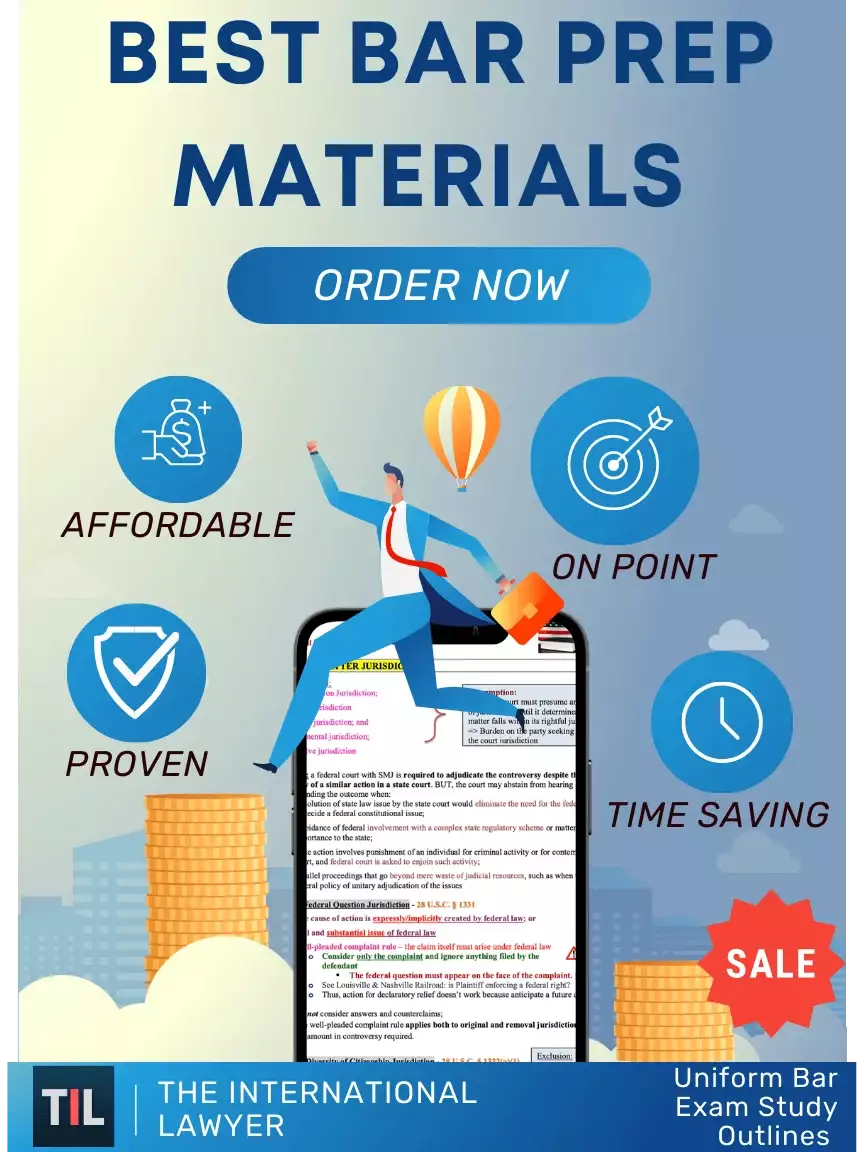Many students are overwhelmed by the amount of material that they need to study for the bar exam. Students will often spend their time creating study guides, flashcards, outlines, and listening to lectures rather than focusing on the essential. This is a notorious trap. What is important is not to create additional hurdles but rather recognize ways to maximize your chances of success on the bar exam. Below is How to Memorize Everything for the Bar Exam.
See, Bar Exam Outlines & Material designed for Success
First of all, do you really need to memorize everything?
This is a common mistake when it comes to Bar Prep: you don’t have to know everything about all areas of law to pass the bar exam. What you want to focus on is what is highly tested!
One of the most common reasons law students do not pass the bar exam is because they don’t focus on the highly tested topics that can maximize their chances of passing the exam. The Multistate Bar Examination (MBE) consists of 200 questions, 25 of which are not scored, and focuses on seven subject areas: Civil Procedure, Constitutional Law, Contract Law, Criminal Law and Procedure, Evidence, Real Property, and Tort Law. The MBE tests your knowledge of these areas of law, but these areas are not tested equally.
The following are the most tested subtopics on the MBE exam:
- Civil Procedure: Jurisdiction and Venue, Pretrial Procedures and Motions are the most tested subtopics under Civil Procedure. There are about 5-6 scored questions for each of these subtopics. There are about 2-3 questions for each of the remaining subtopics.
- Constitutional Law: The most tested subtopic under Constitutional Law is Individual Rights with 12-13 scored questions. The remaining subtopics have approximately 4-5 questions each.
- Contract Law: Formation of Contracts, and Performance, Breach, and Discharge are the two most tested subtopics under Contract Law. There are about 6-7 questions for each topic and the remaining subtopics have about 3-4 questions each.
- Criminal Law & Procedure: The most tested subtopic under Criminal Law and Procedure is Constitutional Protection of Accused Persons with 12-13 scored questions. The remaining topics have about 3-4 questions each.
- Evidence: Relevancy and Reasons for Excluding Relevant Evidence is the most commonly tested subtopic of Evidence with 8-9 questions. Following, Presentation of Evidence, and Hearsay and Circumstances of its Admissibility have 6-7 questions each. The remaining subtopics only have 2-3 questions each.
- Real Property: This is the only section in which each subtopic is tested equally with 5-6 questions each.
- Tort Law: Negligence is the most tested subtopic under Tort Law with 12-13 scored questions. The remaining subtopics have approximately 4-5 questions each.
While students should not neglect the other subtopics, it’s important to recognize these highly tested topics on the exam and prioritize them to maximize their chances of passing the exam, especially on the MBE as it takes up 40-50% of a student’s overall score. [More on this] So instead of outlining the entire course of Trust and Estate, you might want to be strategic.
So, how to memorize everything for the Bar Exam?
You must have heard this before but the Bar Exam is a marathon – the best way to succeed is to come prepared! Don’t start your Bar Prep without a plan: for example, are you a morning person? If so, then start with the most challenging tasks in the morning.. and if the lectures don’t help you, then you shouldn’t probably start with the lectures. Below are a few tips on How To Memorize Everything for the Bar Exam:
1. Break it down, start small
Set yourself a reasonable objective for the day, for example: memorize a section of your outline, actively memorize that section, and only move on to the next one once you feel comfortable with the first one. Read it several times, try to read the section in your mind without looking at it, etc. Taking the material one small chunk at a time will make memorization much more manageable and, hopefully, less overwhelming.
You can also memorize the titles of your outlines or write down your outline without looking at it. If it takes longer, commit the time: moving to the next section without understanding a part of your outline could cost you in the future.
2. Repetition is key, be proactive!
Review that section of your outline several times. From our previous example, you should train your brain as often as possible.
For example, while walking to the library: try remembering the section you memorized the day before. This work in the shower, when cooking food, or any time you are not actively studying. If you still have trouble remembering a section, write it down and stick it on your wall – or record yourself and listen to it when working out. The more you see an information, the easier you will remember it.

3. Practice Practice Practice
Of course, the best way to memorize for the bar exam is to practice as much as you can. This will help you understand the exam AND memorize the material! Remember: the secret is not knowing everything, is knowing what is tested on the bar exam.
This is why we tell students NOT to spend their entire time preparing colorful outlines. If you don’t have any outlines, check out our bar exam material ! Those outlines are made for the Bar Exam with three focus: (1) memory retention; (2) convenience; and (3) money-saving. Just take a look, you will thank us later.

4. Time management matters
Many students don’t pass the bar exam on their first attempt due to a lack of time. Studying for the bar exam is a time-consuming process and many students do not understand how much time they have to devote to taking and preparing for the exam. Preparing for the bar exam takes roughly 400 hours, so students have to decide how to delegate their time. The time it takes for students to grasp what is required of the exam is critical and may influence other aspects of their lives, including work and their social life. In addition, students should figure out a study schedule that allows them to prepare, memorize, practice and find time to take care of themselves.
MORE ON THIS TOPIC: Best Memorization Techniques







